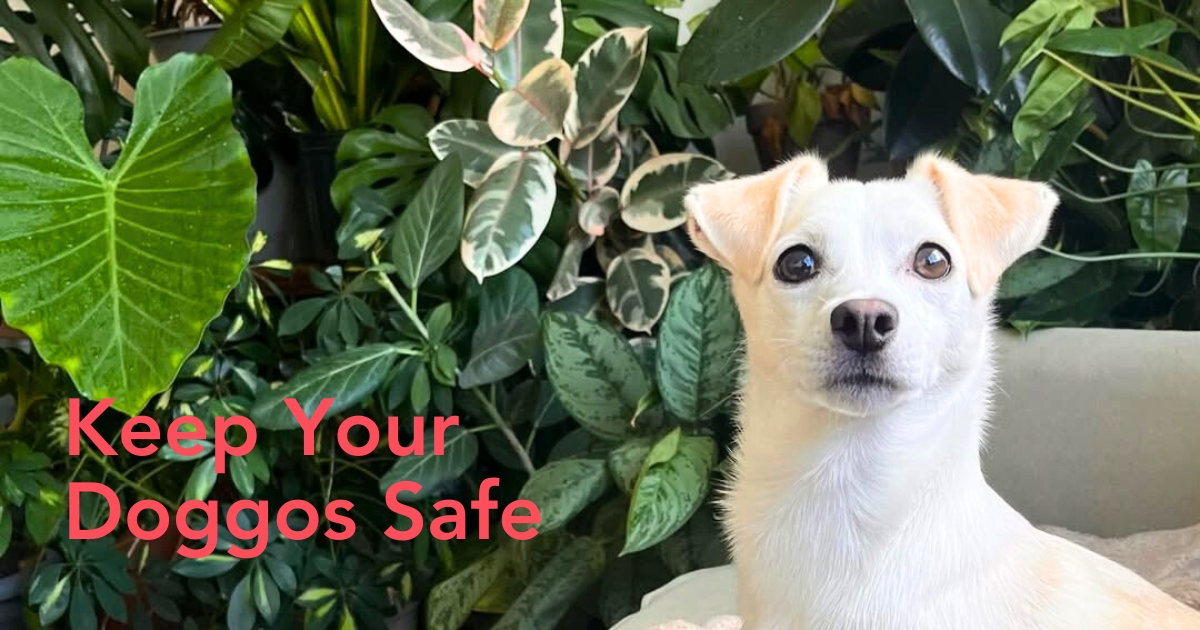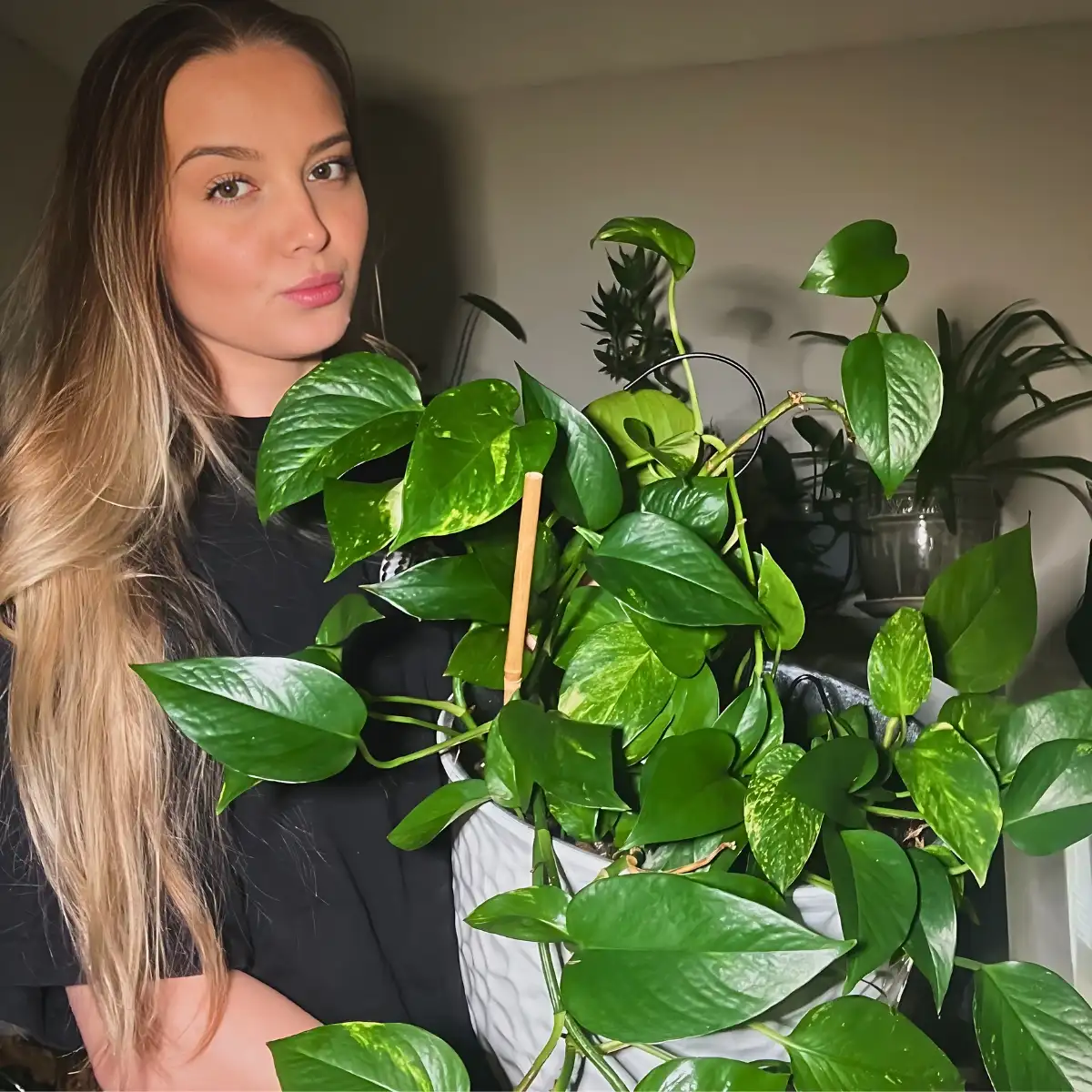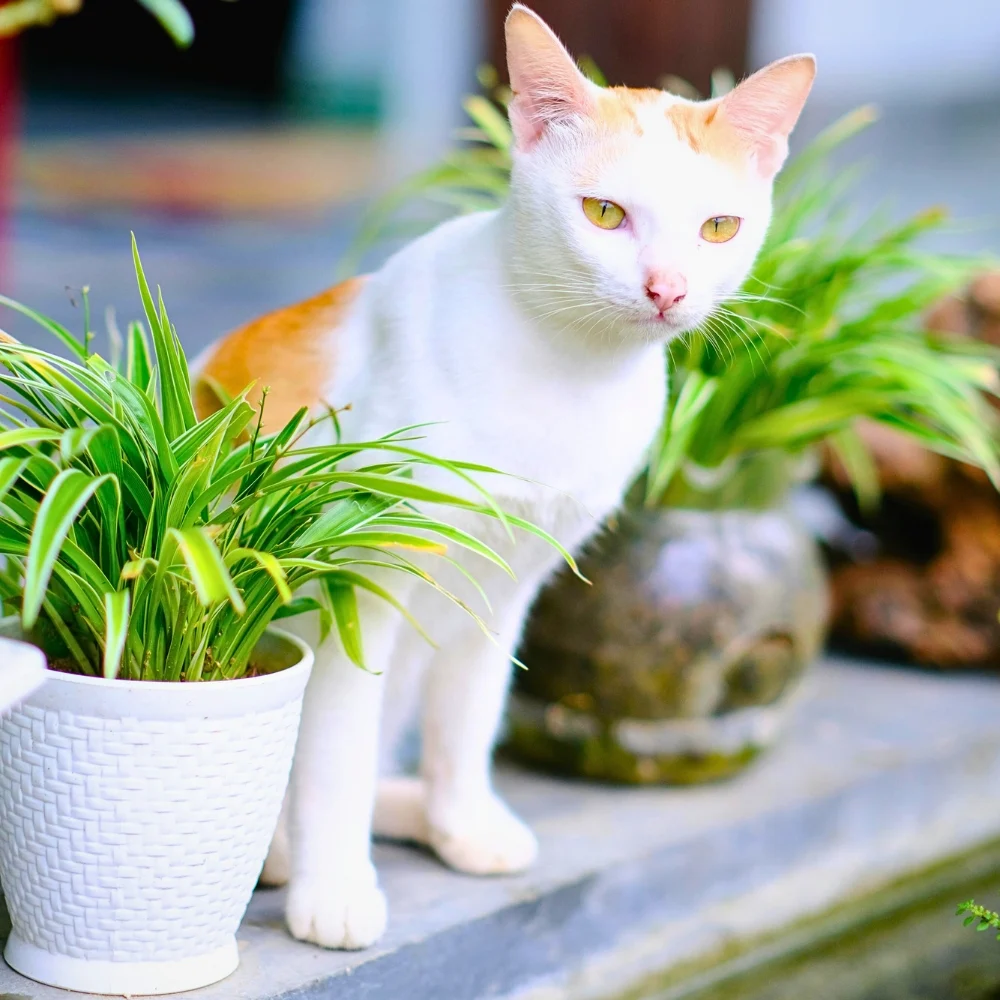It can be hard to balance the love for plants and dogs, and although you might want to get your house looking green and full of plants, some are off-limits for dogs. While most dogs instinctively know to avoid poisonous plants, which is a miracle in itself, it is still good to be on the safe side of things.
Having plants around brings tremendous benefits, and it is no myth. They are perfect for aesthetics but also enhance your well-being. By purifying the air, absorbing moisture, or just for your general feeling, plants in your home bring positivity and relaxation. Although they are a beautiful addition all day, every day, and everywhere, you might want to watch out for these ten if you have dogs.
10 Houseplants That Are Poisonous to Dogs
Most dogs understandthat these ten plants are not to be approached instinctively. However, if you want to be certain and keep them secure at all times, you can substitute various types of plants for your dogs' happiness, safety, and long-term companionship.
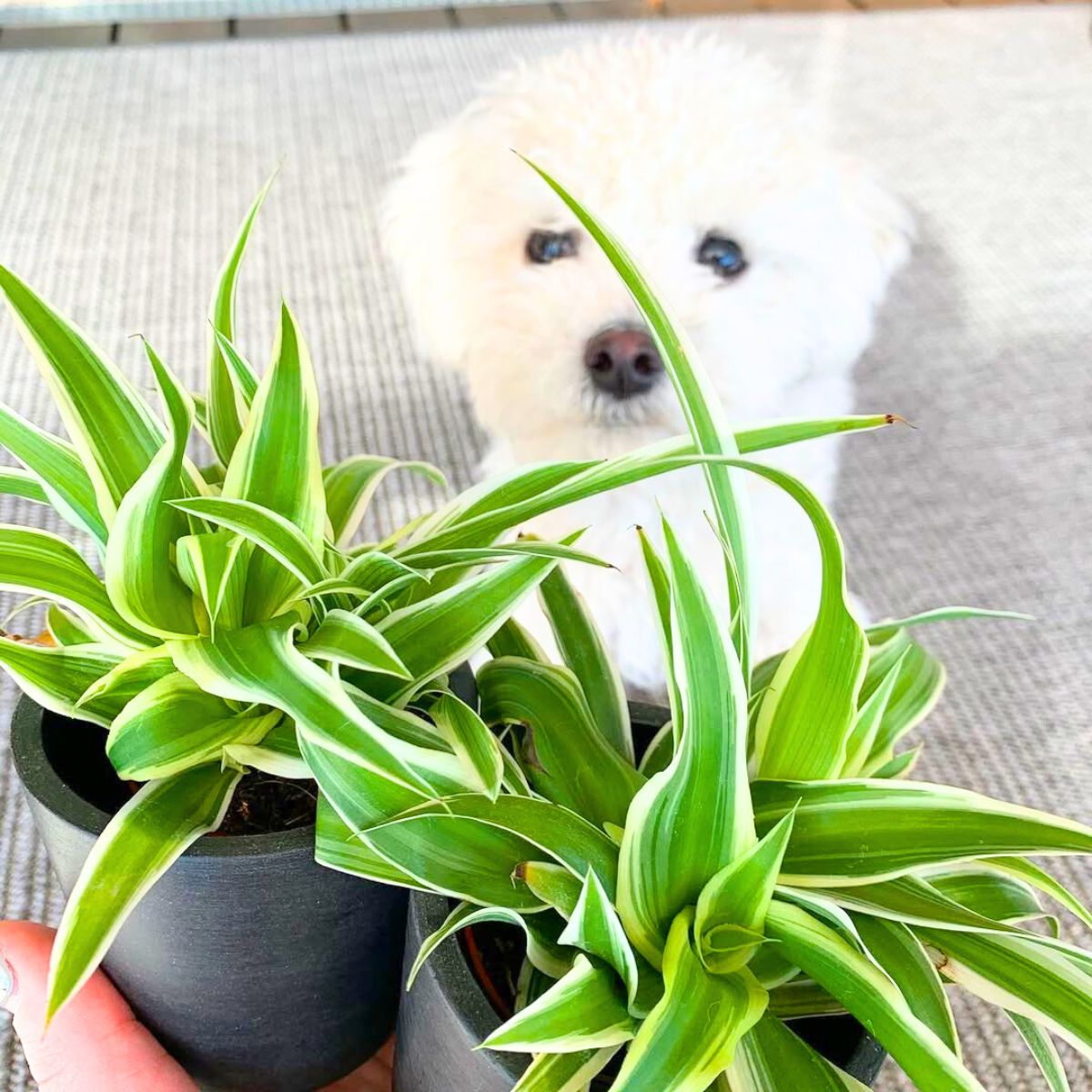
Photo: @elmobolognese
1. Aloe Vera
Although this is a very common houseplant that the majority of the plant-loving population has at home and has some parts that are safe for dogs, it's better to keep them away from your four-legged friends. Aloe vera is considered among the houseplants that are poisonous to dogs because chewing on the plant can expose a dog to toxins called anthraquinone glycosides, which can cause diarrhea and vomiting.
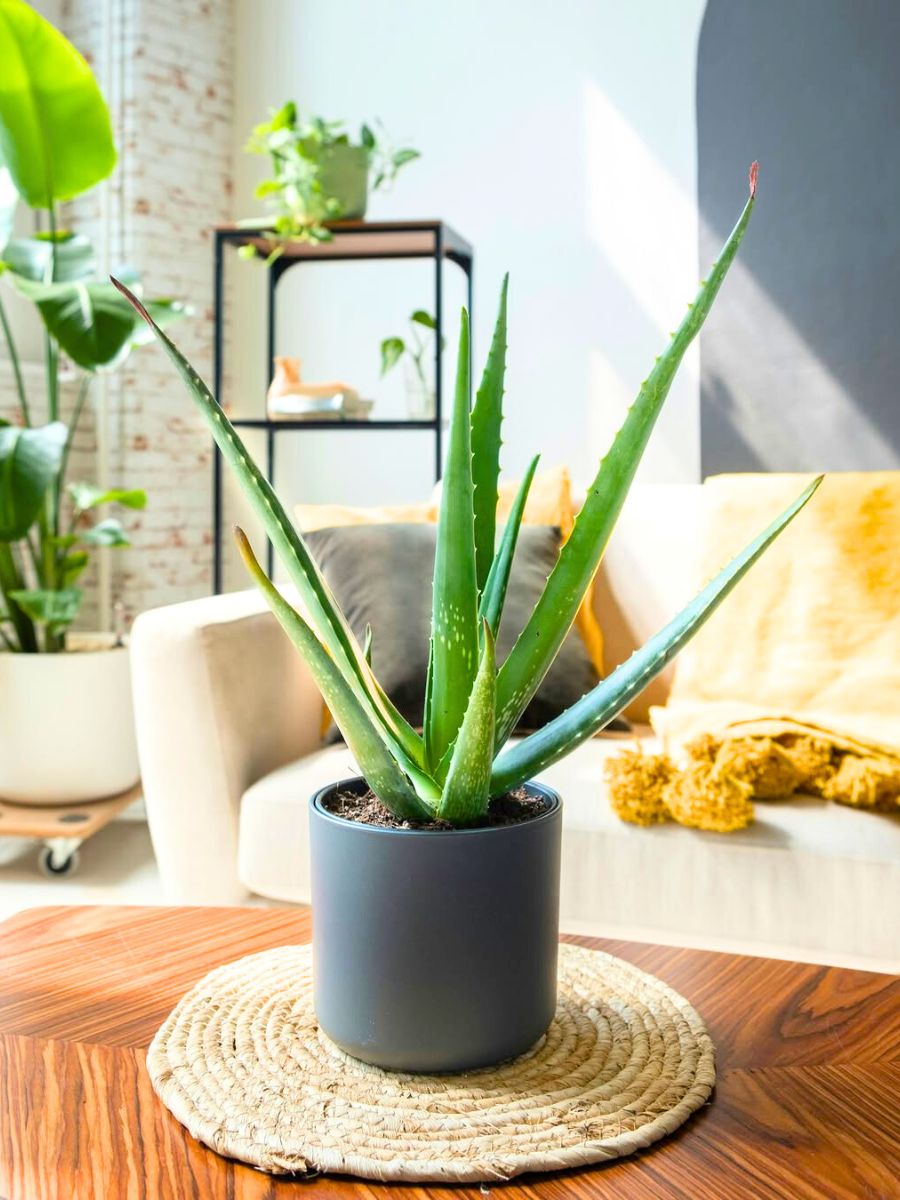
Alternative: the Haworthia, also known as the zebra plant, will keep your dog safer. Besides that, you’ll practically get a very similar soft spiny look without the toxicity risks.
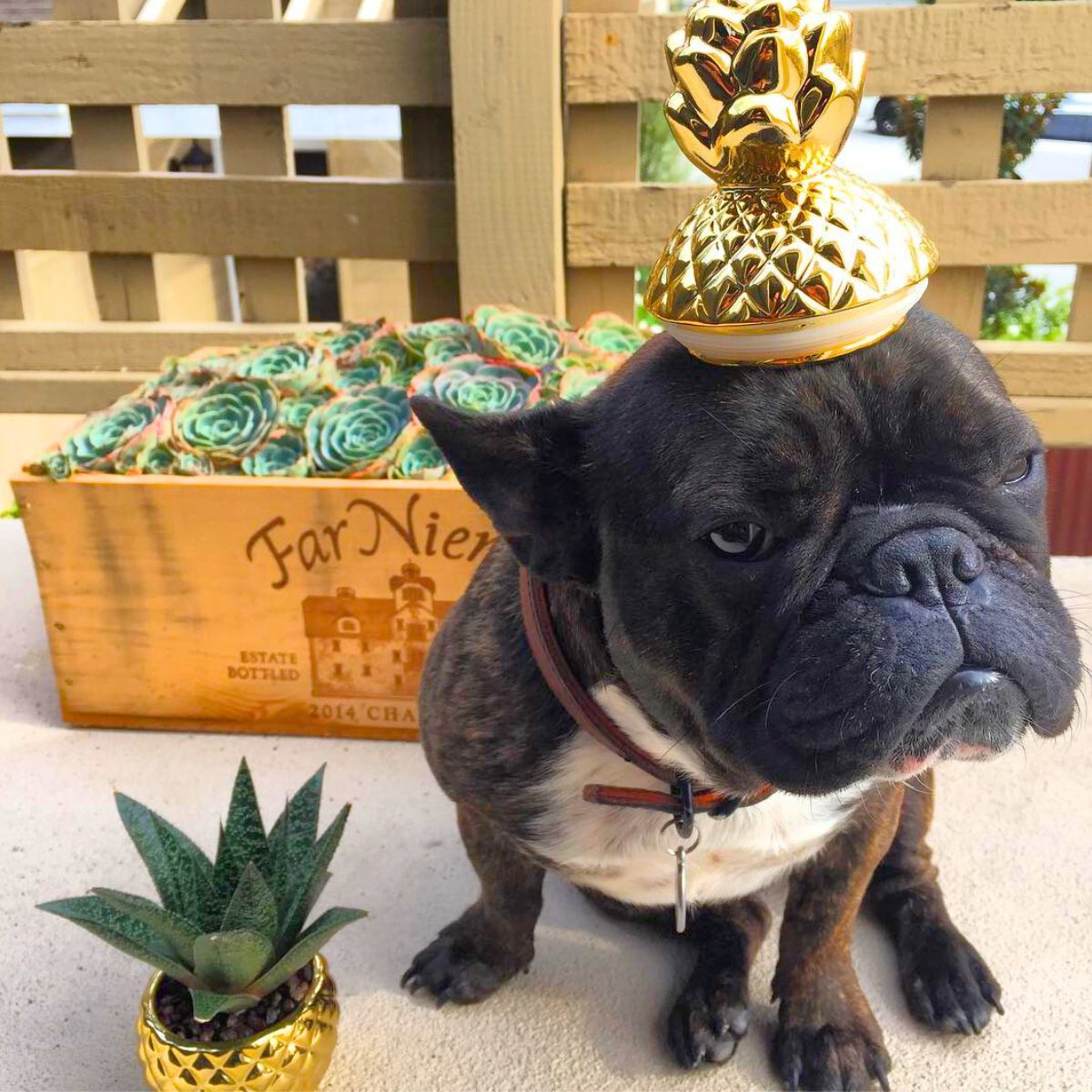
Photo: @mikepyledesign
2. Ivy (Including English Ivy and Others)
Although ivy plants may look stunning tumbling out of a wall or garden, they are not among the best suited to have around your dog. Various ivy varieties are considered houseplants that are very poisonous to dogs because of several toxins the plant contains. Triterpenoid saponins and polyacetylene compounds will cause excessive drooling, vomiting, diarrhea, and abdominal pain if your dog chews on a leaf.
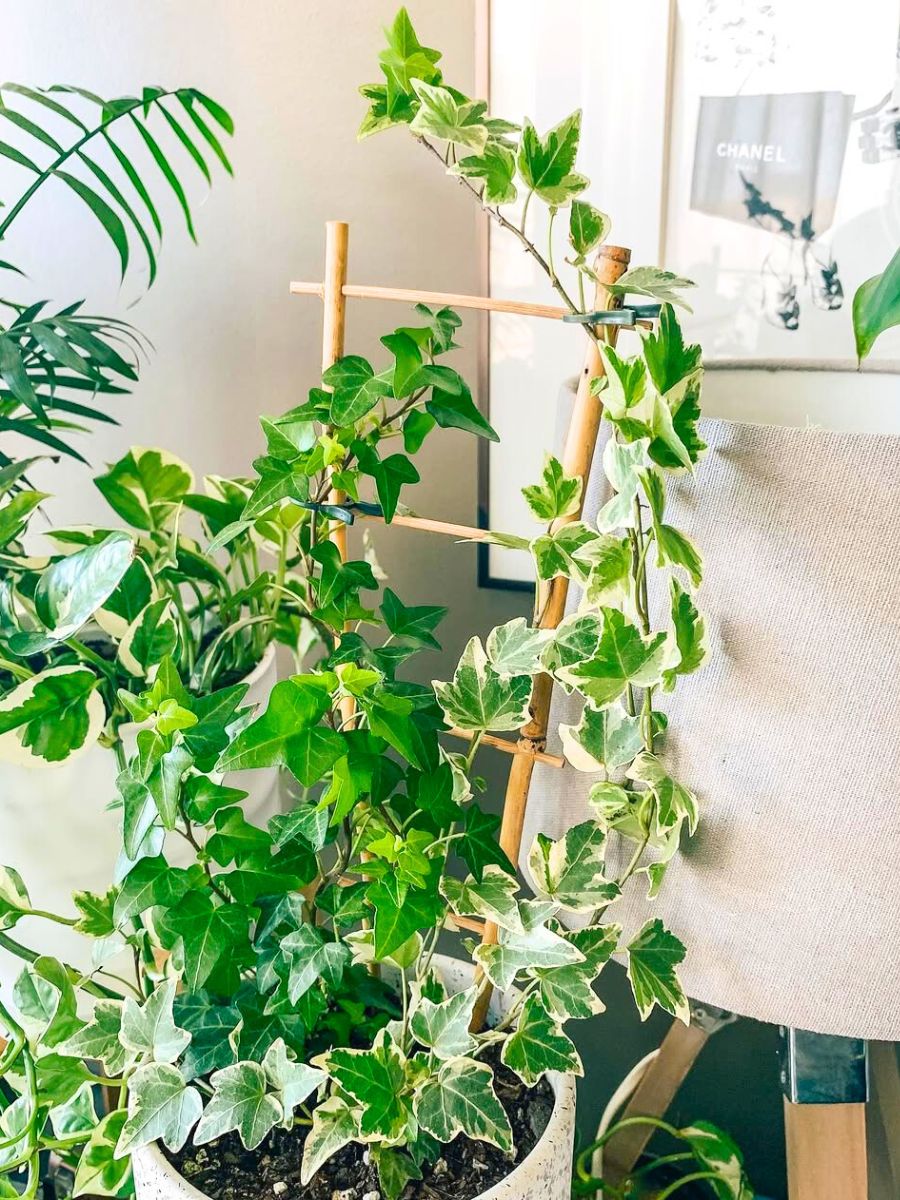
Alternative: a Swedish Ivy houseplant will let you enjoy a cascading effect as well, plus it's easy to care for and grows quickly with little maintenance.
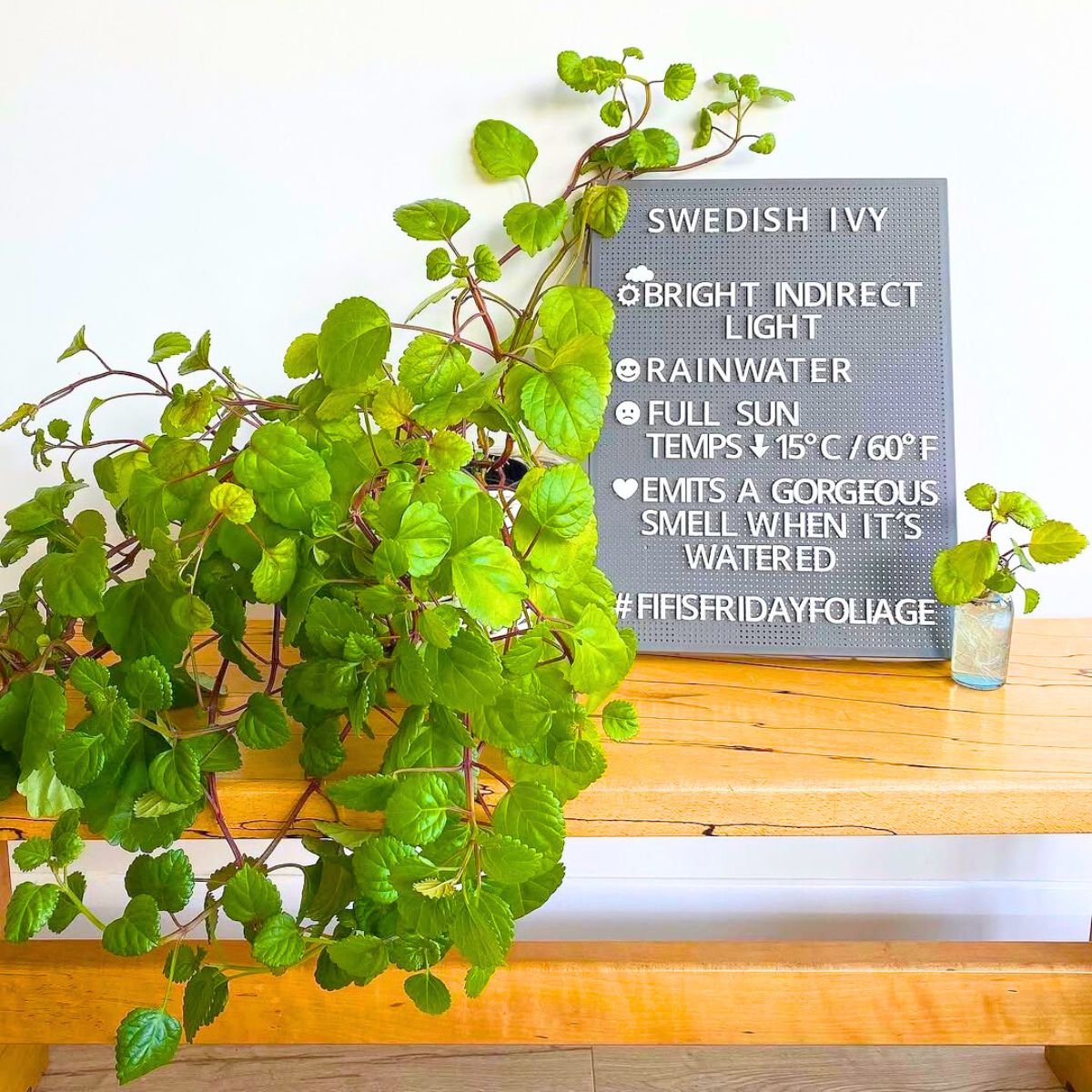
Photo: @evasoceanhome
3. Jade Plant (Crassula Ovata)
Another houseplant that is poisonous to dogs is the jade plant. This rubber-like type of plant is known to cause vomiting and a slow heart rate, in addition to a harder-to-identify symptom that involves great sadness and depression. Make sure to keep it away from your dog to avoid chronic health problems and keep them smiling joyfully every day.
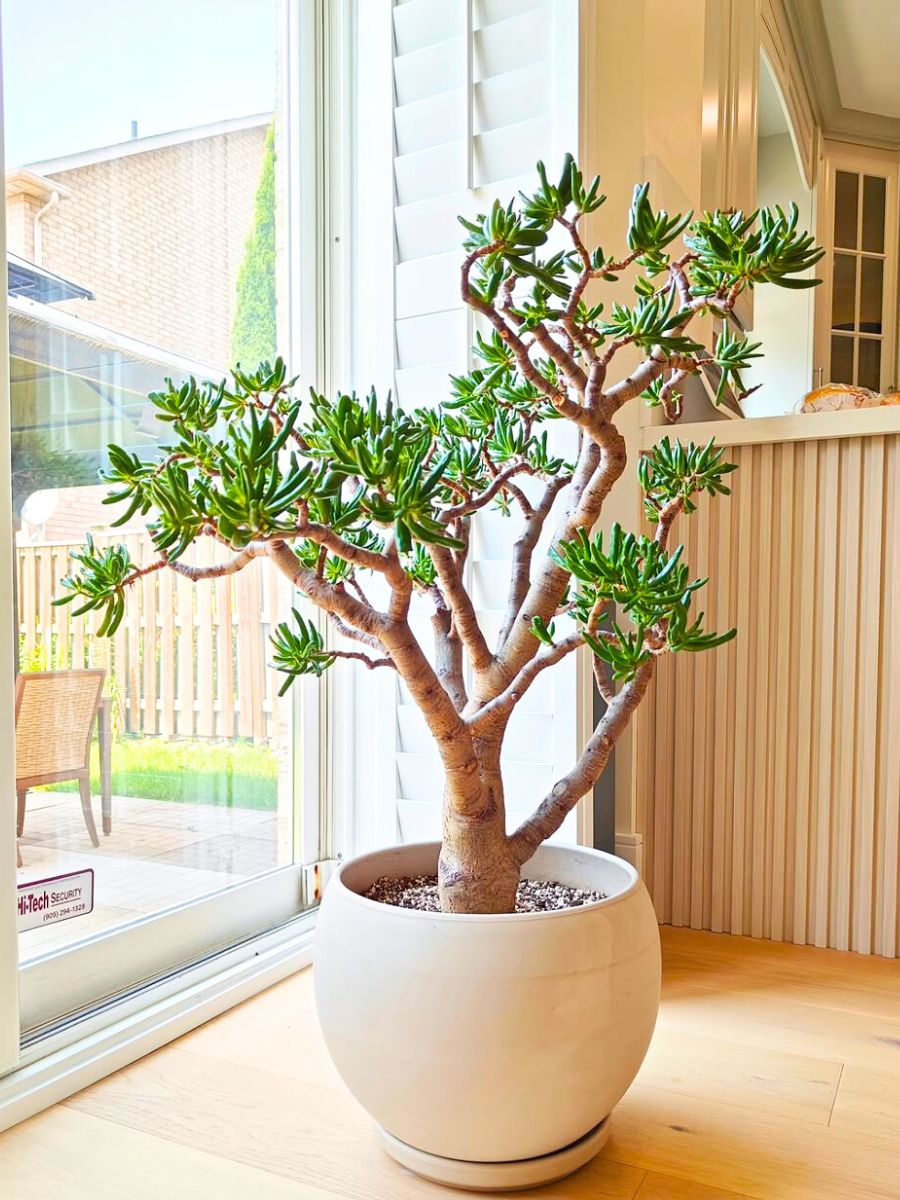
Photo: @houseplantjournal
Alternative: the Christmas cactus is a beautiful, pumped, red cactus that is very easy to care for, plus in ideal conditions, you’ll see more good growth and a yearly set of red or bright pink flowers. A much better option than the jade plant if what you're looking for is safety for your doggo.
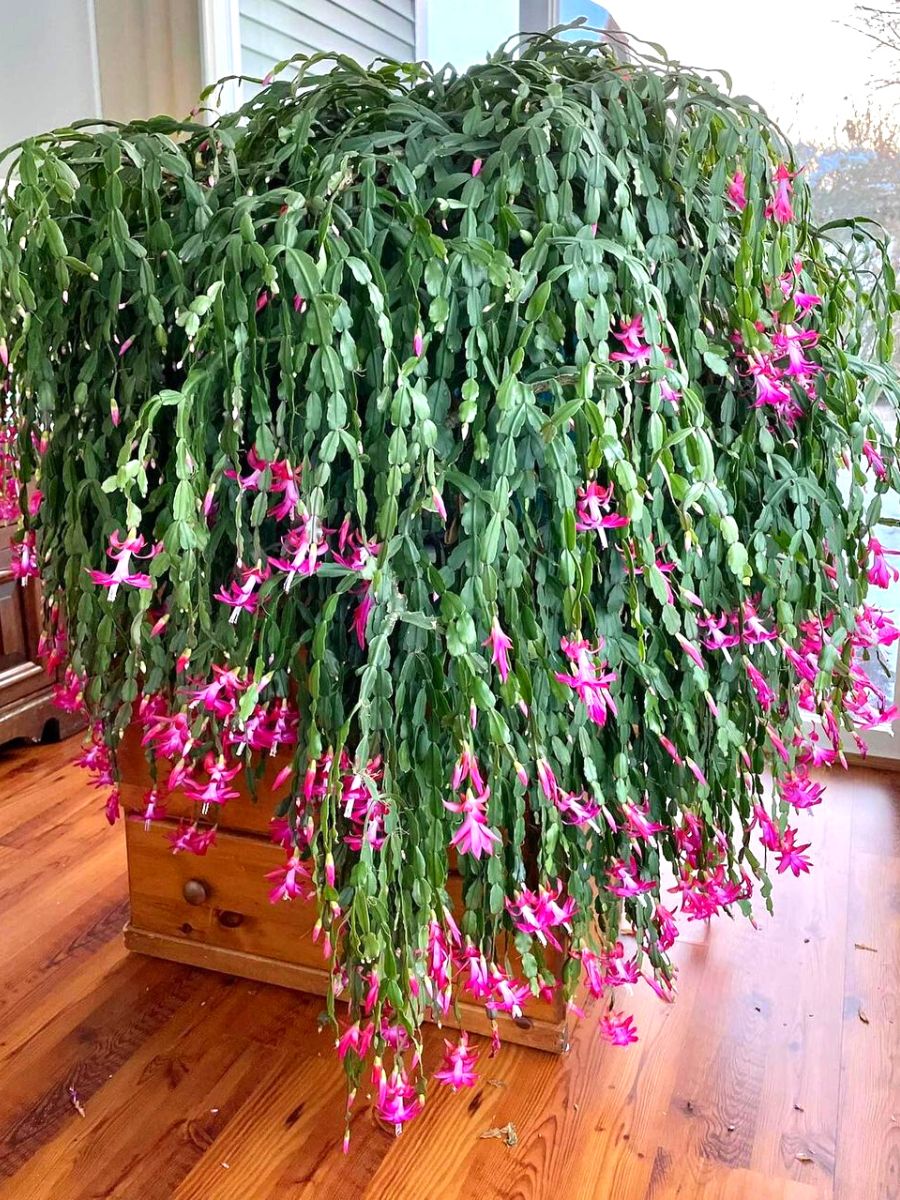
4. Dieffenbachia
Why is this houseplant considered poisonous to dogs? Simply explained, the leaves of this specific plant, a.k.a 'leopard lily',contain tiny, sharp calcium oxalate crystals that can easily irritate a dog’s mouth and cause severe swelling and burning of the mouth and tongue.
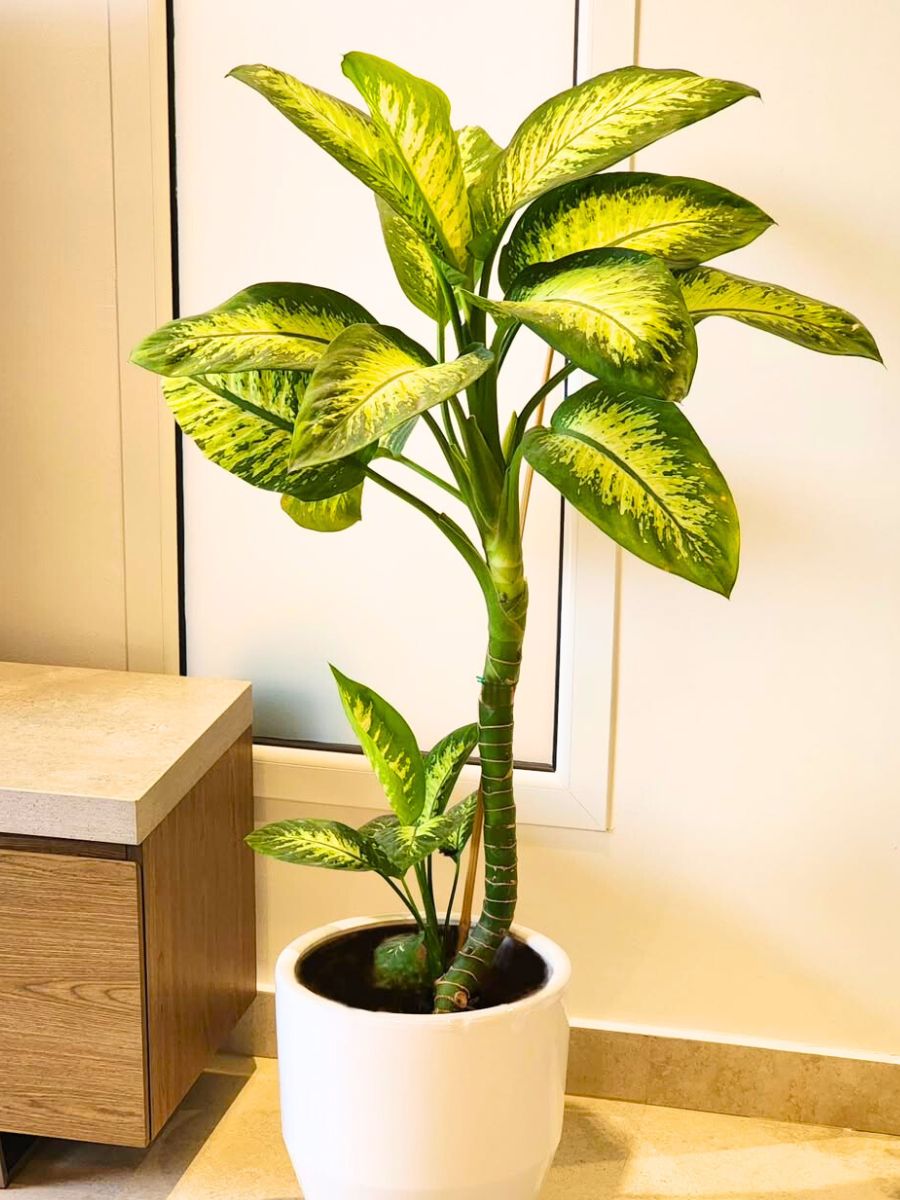
Photo: @theplantshop.bh
Alternative: a Maranta leuconeura, known as the prayer plant, which tolerates low-light conditions and infrequent watering, will save you a lot of time and preoccupation plus is not considered a poisonous houseplant to dogs.
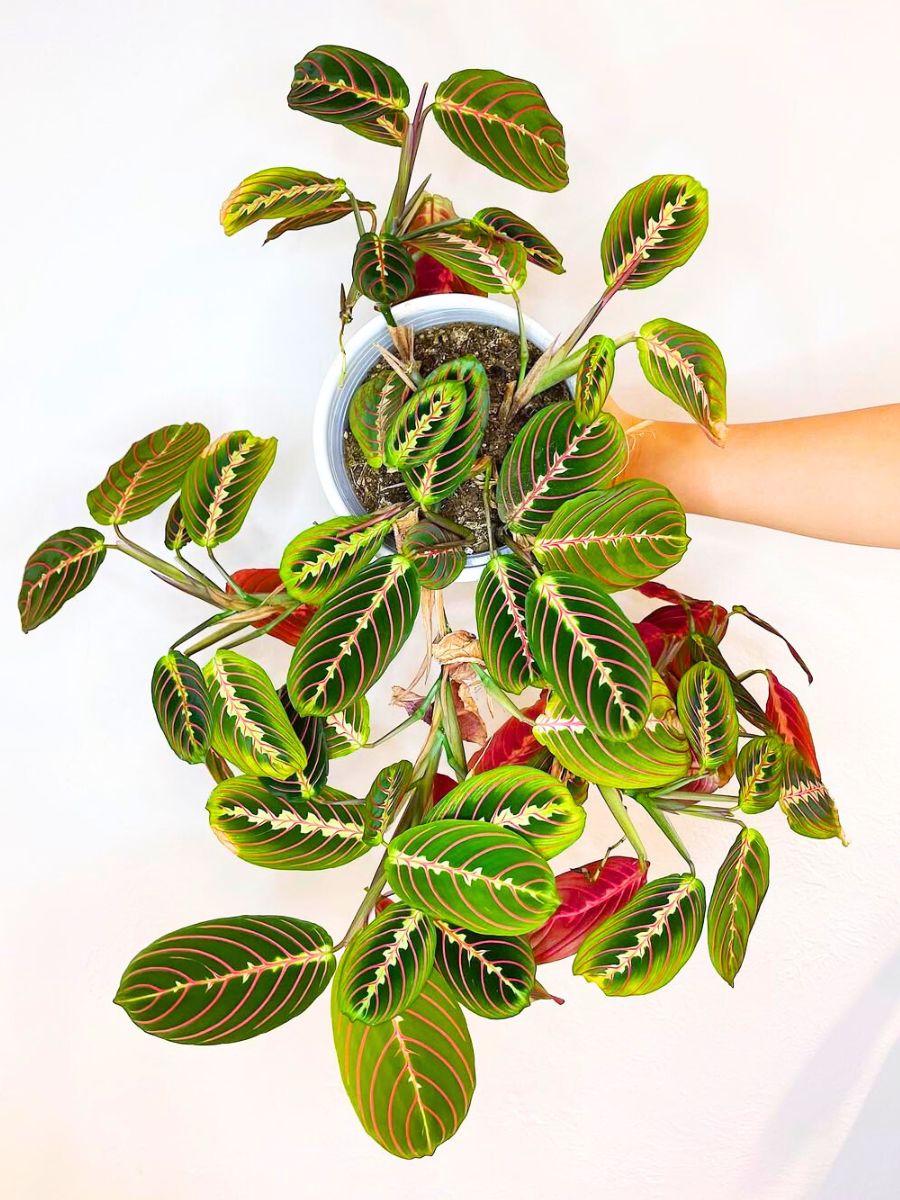
5. Philodendron Species
Just like the Dieffenbachia plant, all Philodendron species have very similar consequences for your dog if chewed or swallowed. Make sure to keep them away from this type of plant, given the fact that the calcium oxalate in the leaves can irritate a dog’s mouth, resulting in swelling, burning, and occasionally difficulty breathing. There are more than 50 Philodendron species that can be poisonous to dogs.
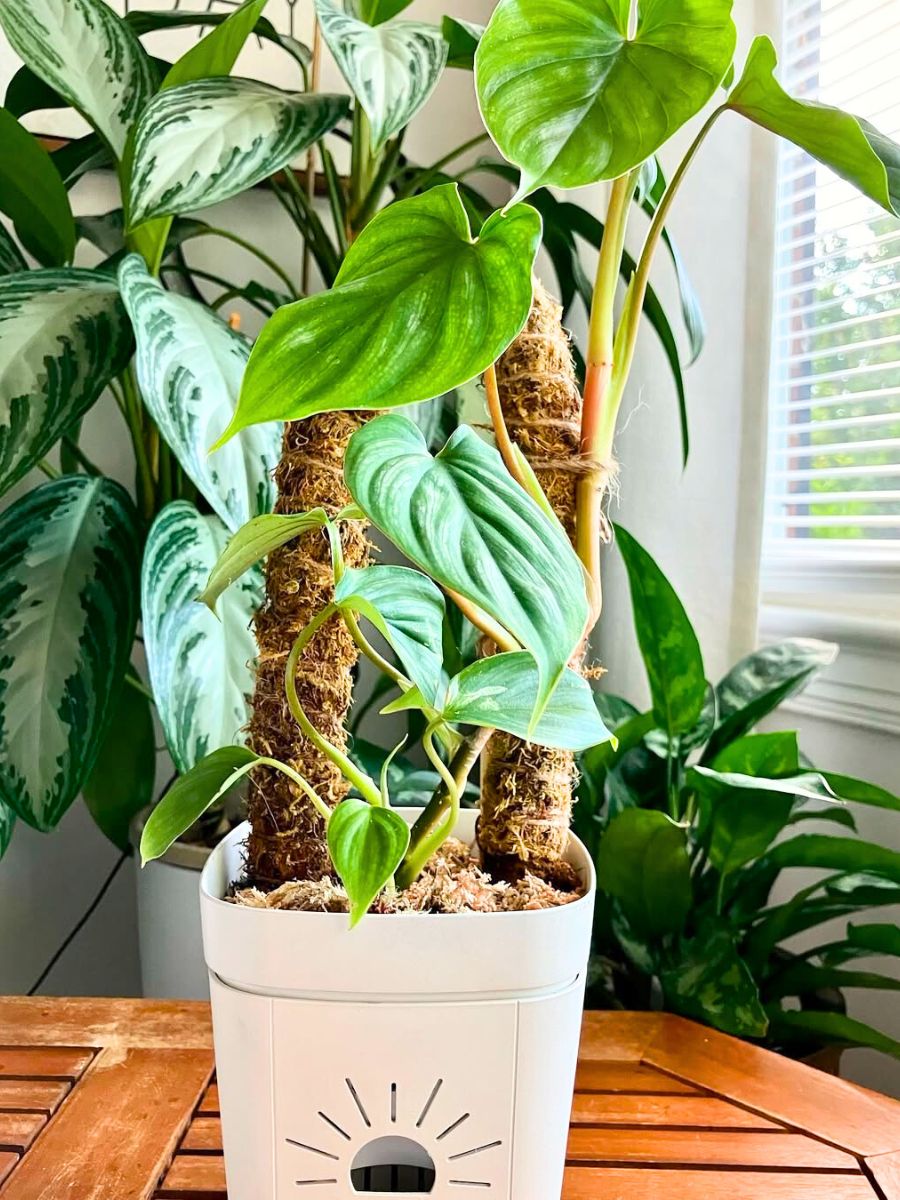
Alternative: the Areca Palm houseplant is a much better alternative and lets you live your days stress-free. No worries, you'll be able to keep the tropical vibes aligned when you replace your philodendron. With proper care, you can expect an areca palm to reach a height of 1.8-2.1 meters (6 to 7 feet) and live for up to a decade.
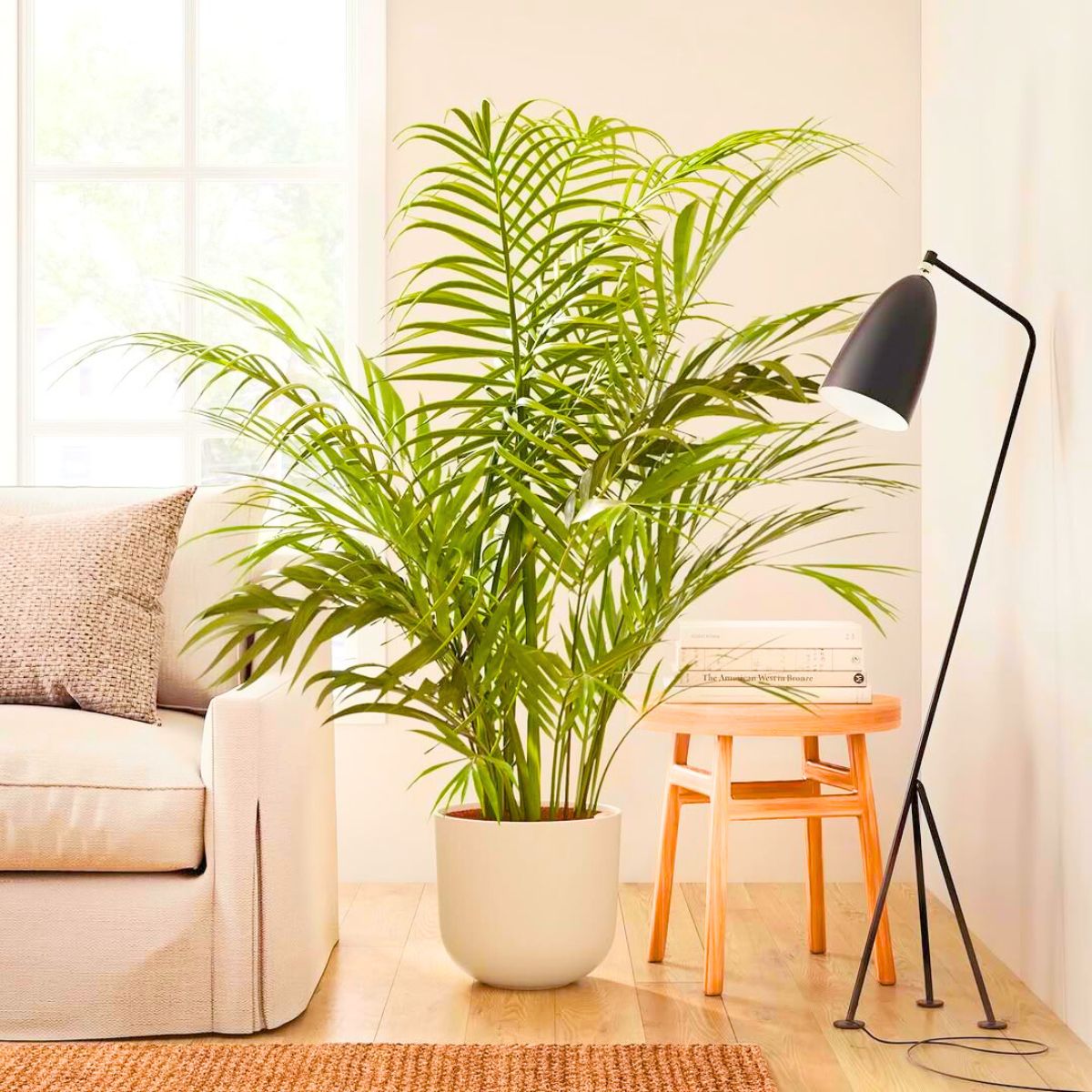
Photo: @easyplant
6. Sago Palm (Cycas Revoluta)
Pay close attention to this one – the Sago Palm, as it is known to be one of the 10 most poisonous houseplants to dogs, all the way from the seeds and roots to the leaves. The toxin cycasin can cause vomiting and diarrhea, and in severe cases, the toxicity can even result in seizures, lethargy, and liver failure. Better take it out of your house!
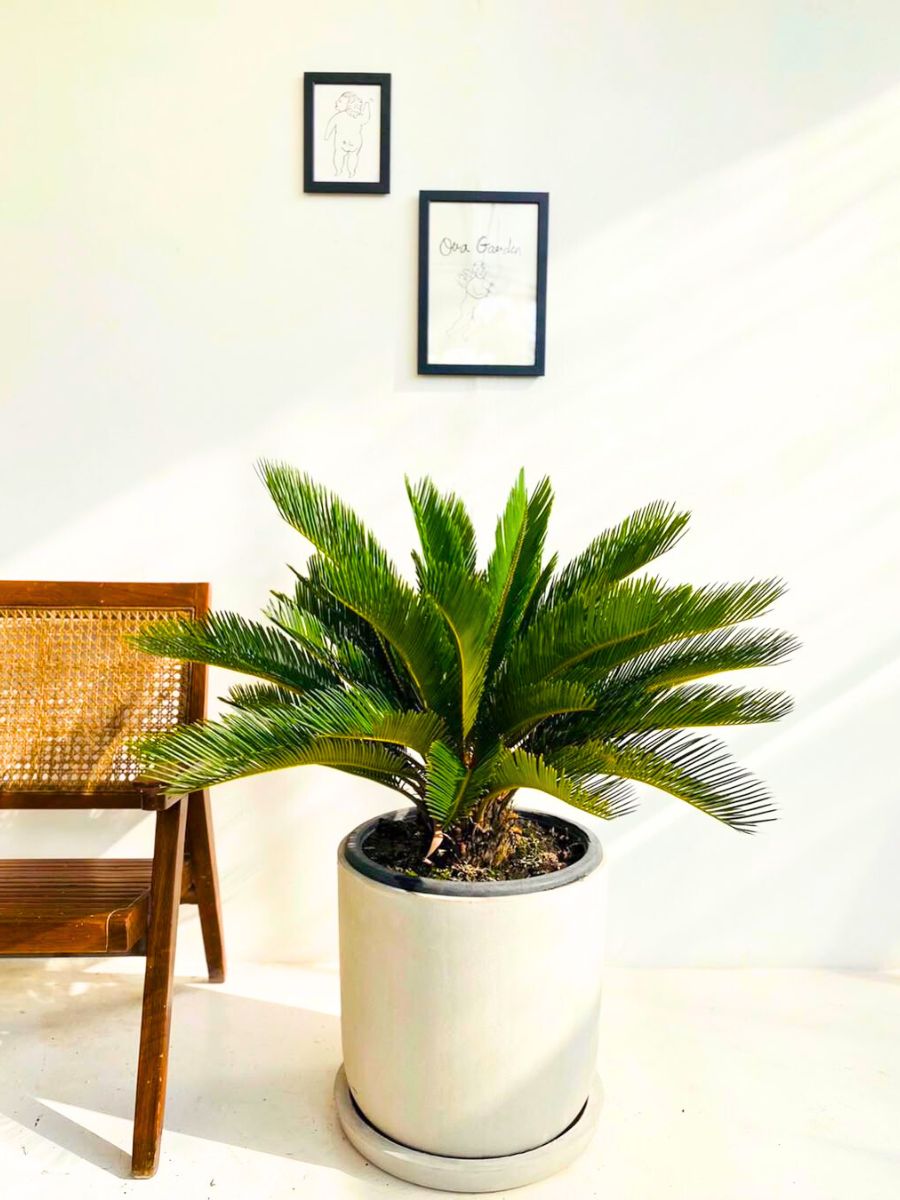
Alternative: a Chamaedora Elegans, a.k.a. Parlor Palm, grows upright and brushlike. You can count on it to stay roughly the same size, making it a fun and predictable creative plant for you to explore.
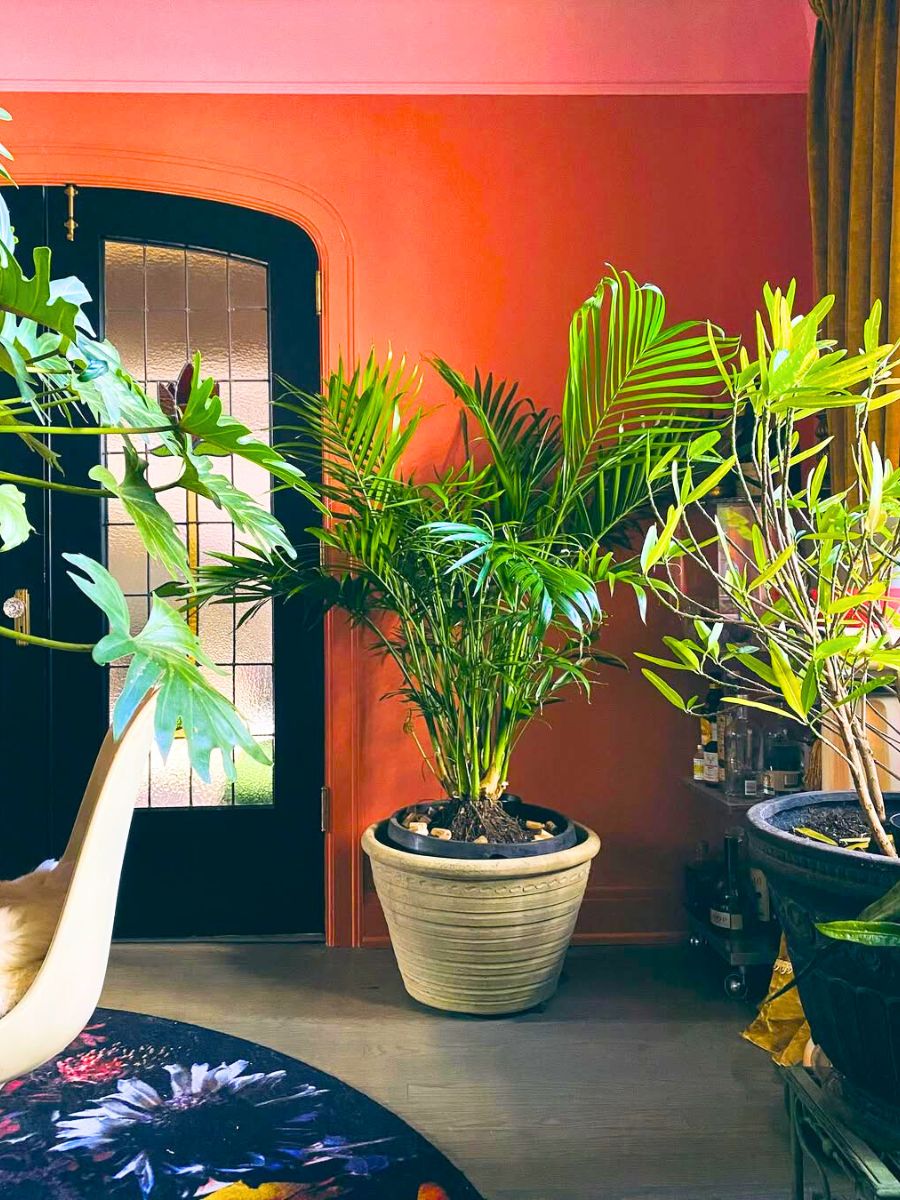
Photo: @kim_dti
7. Asparagus Fern
Similar to other houseplants that are poisonous to dogs, the asparagus fern also makes the list for sure. Unfortunately, asparagus ferns carry a toxin that can cause vomiting and diarrhea if ingested, along with skin irritation if your dog is exposed to it repeatedly.
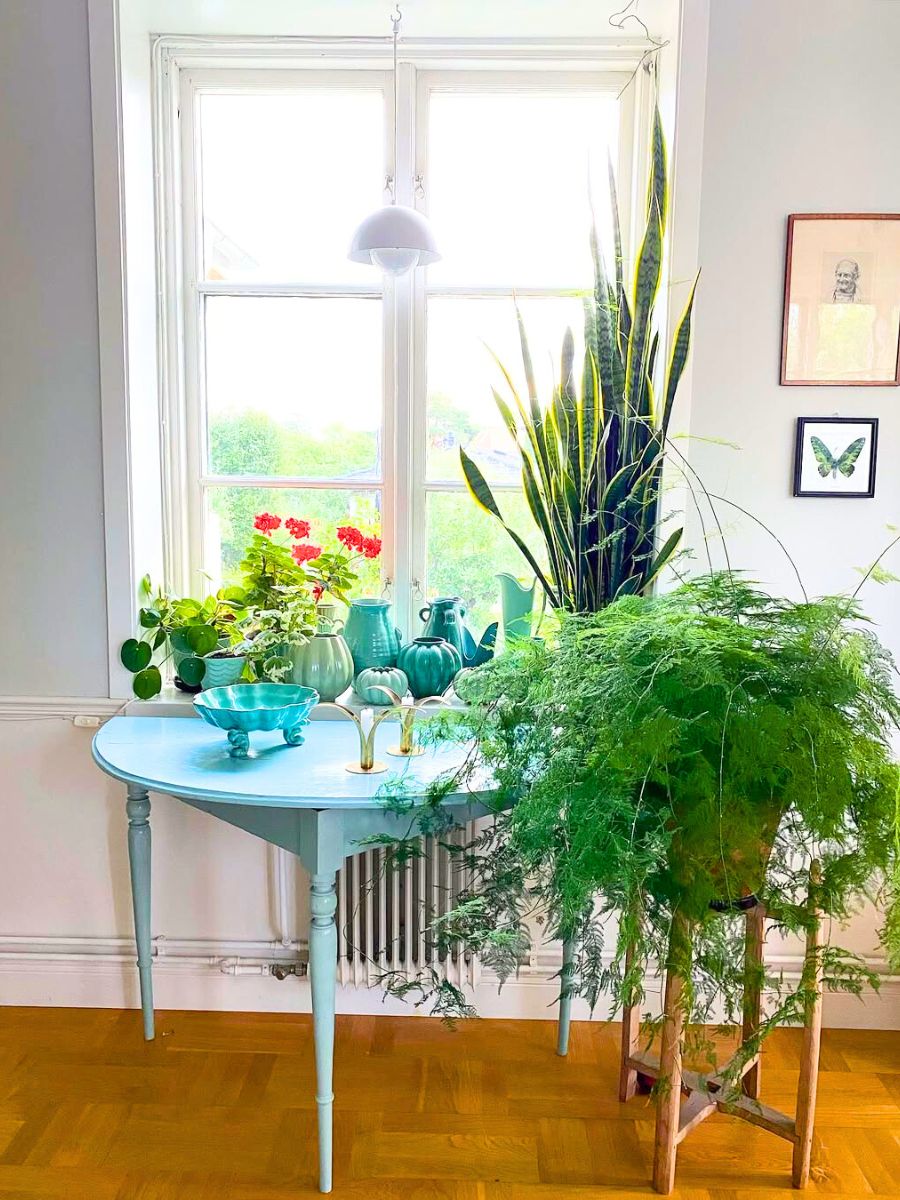
Alternative: Boston ferns (Nephrolepis exaltata) are pet-safe, proven, and studied by veterinarians and plant lovers. If you give them the correct type of lighting, food, watering, and temperatures, these plants are very easy to care for and will thrive as houseplants.

8. Peace Lily
Not many people know that the Spathiphyllum, a.k.a. peace lily, is one of the ten houseplants that are poisonous to dogs. If you have one of these in your house, you might want to consider giving it away ASAP. Peace lilies can cause severe and excessive drooling, difficulty breathing, and swallowing.
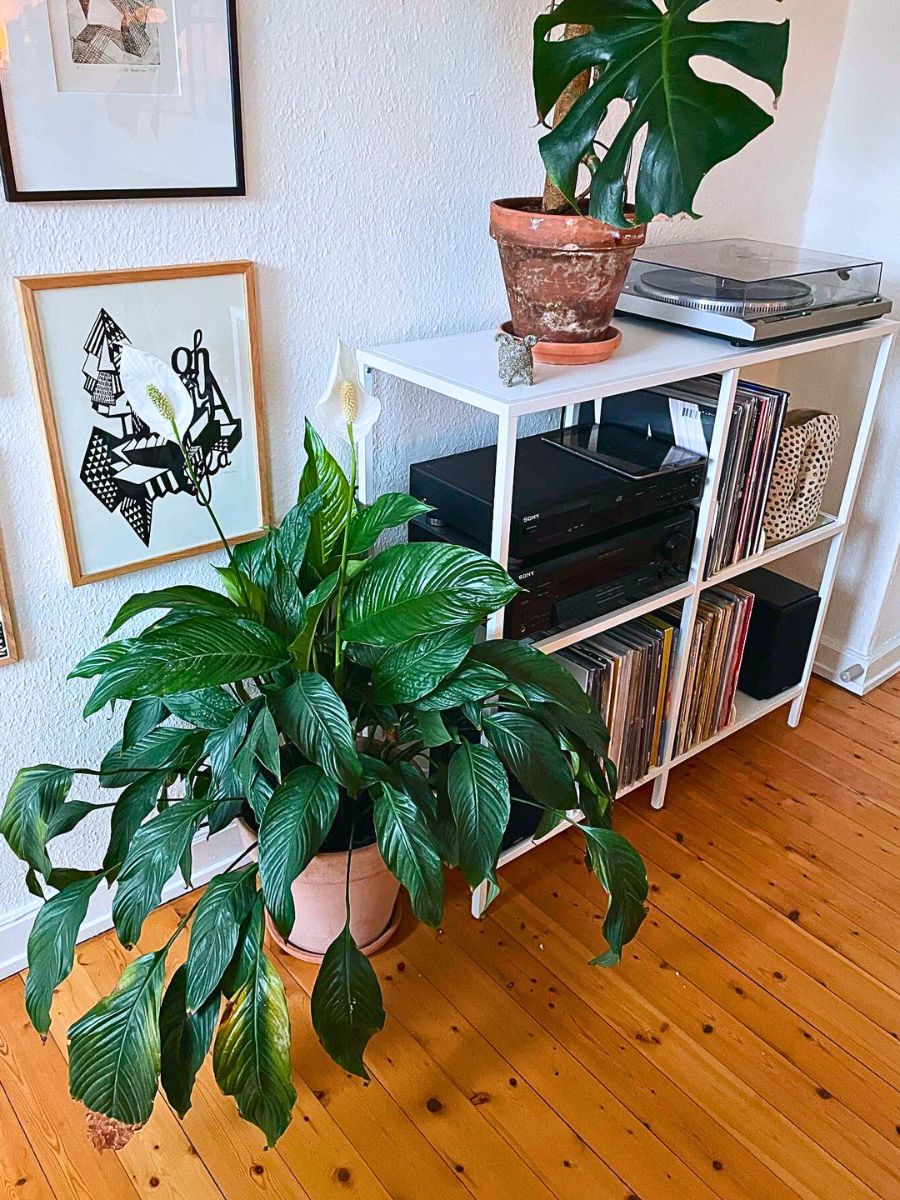
Alternative: Phalaenopsis orchids are exotic flowers that feature gorgeous colors, and their compact size makes them a perfect fit for a houseplant habitat.
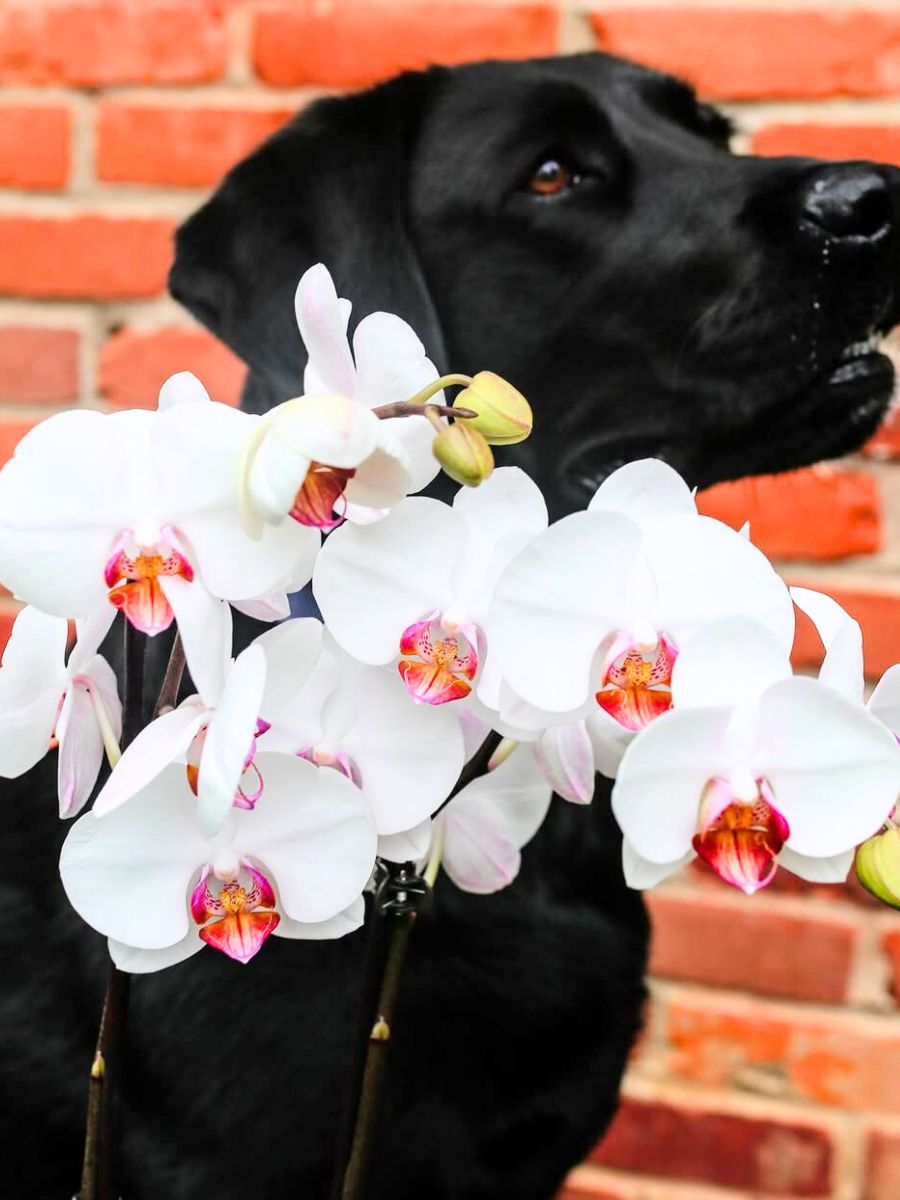
9. Snake Plant (Sansevieria)
The snake plant is a popular choice for its hardiness and attractive appearance. However, it contains saponins, which can cause nausea, vomiting, and diarrhea in dogs if ingested.
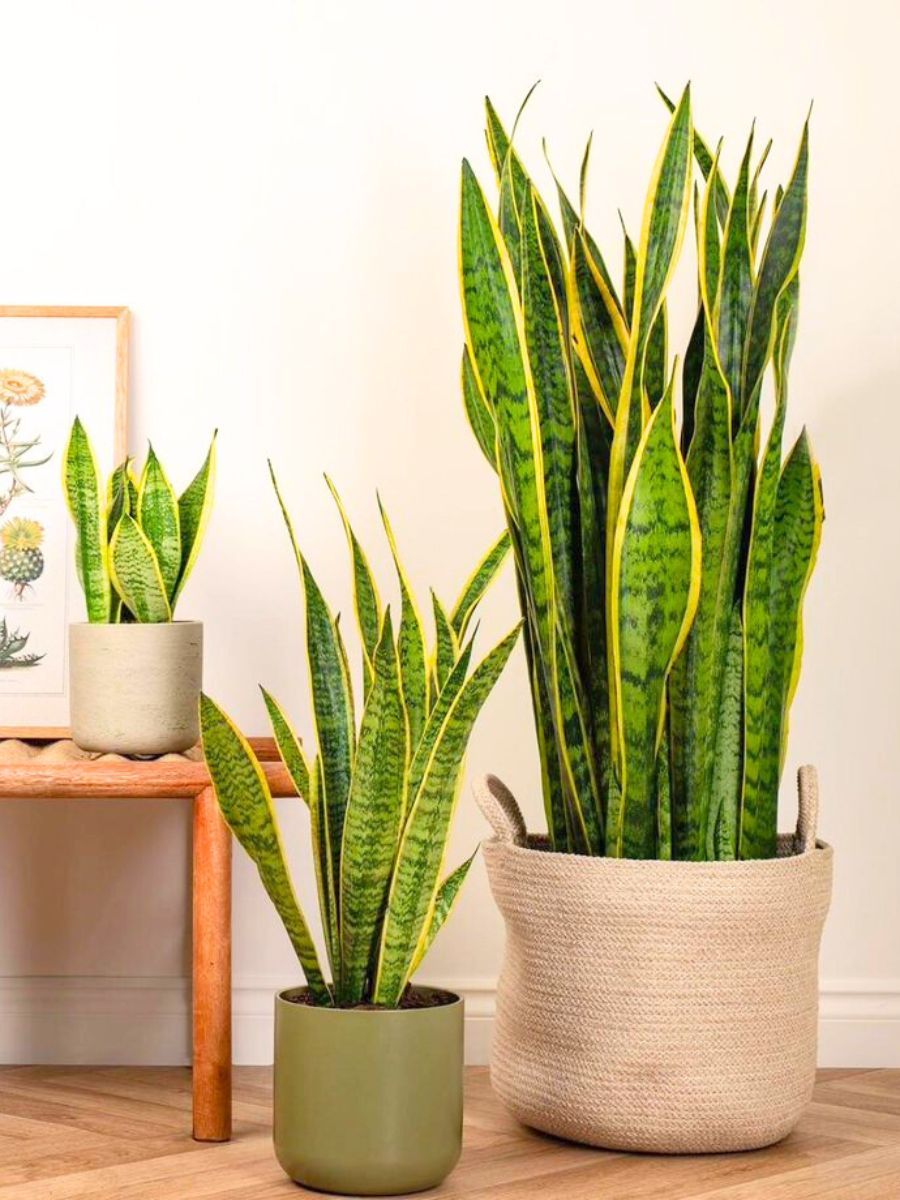
Alternative: the spider plant (Chlorophytum comosum) offers a similar upright, sculptural aesthetic and is completely safe for dogs. It’s also known for its air-purifying properties, making it a great substitute.
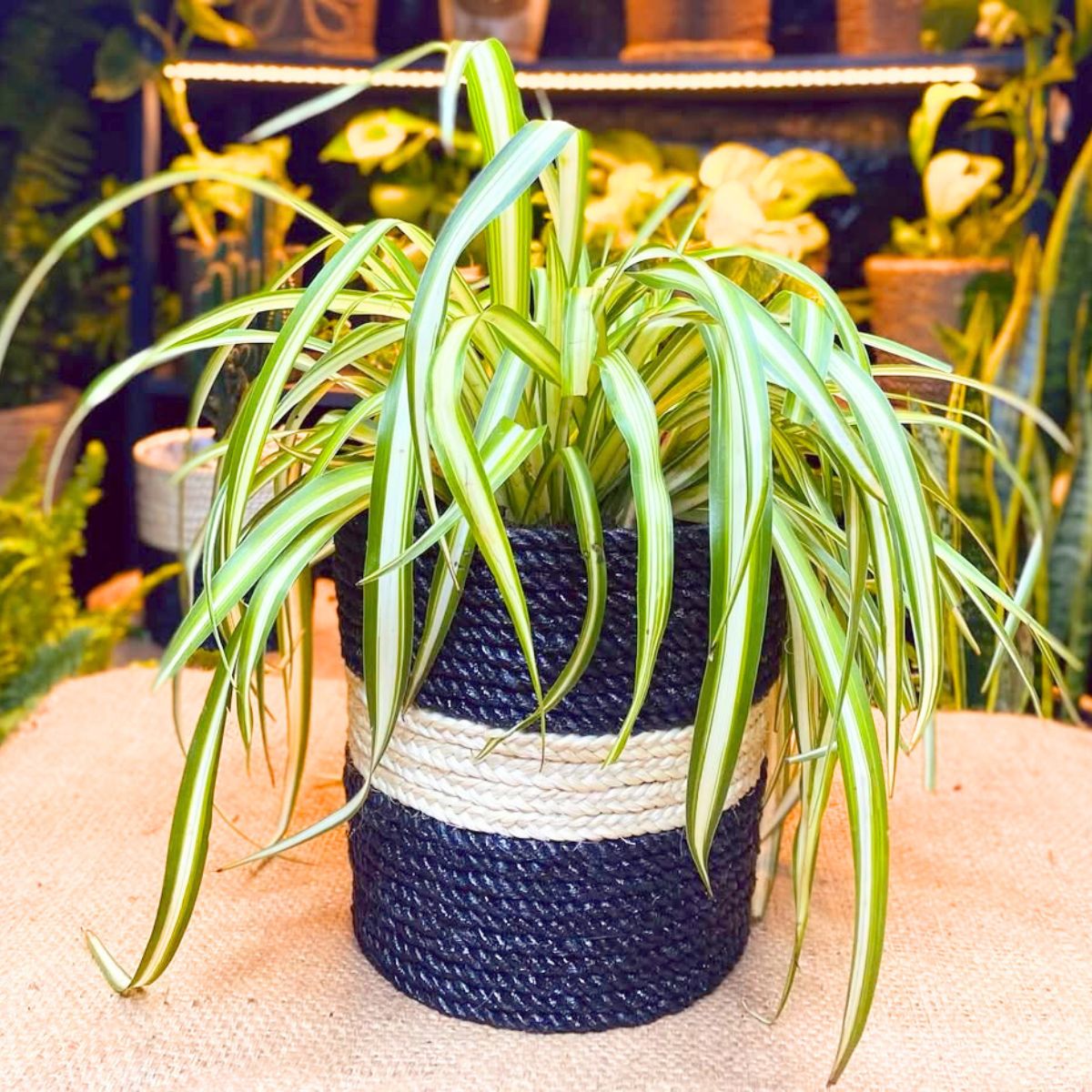
10. Rubber Plant (Ficus Elastica)
The rubber plant is another common houseplant that poses a risk to dogs. Its sap contains compounds that can cause irritation to the skin and mouth and may lead to drooling, vomiting, and difficulty swallowing.
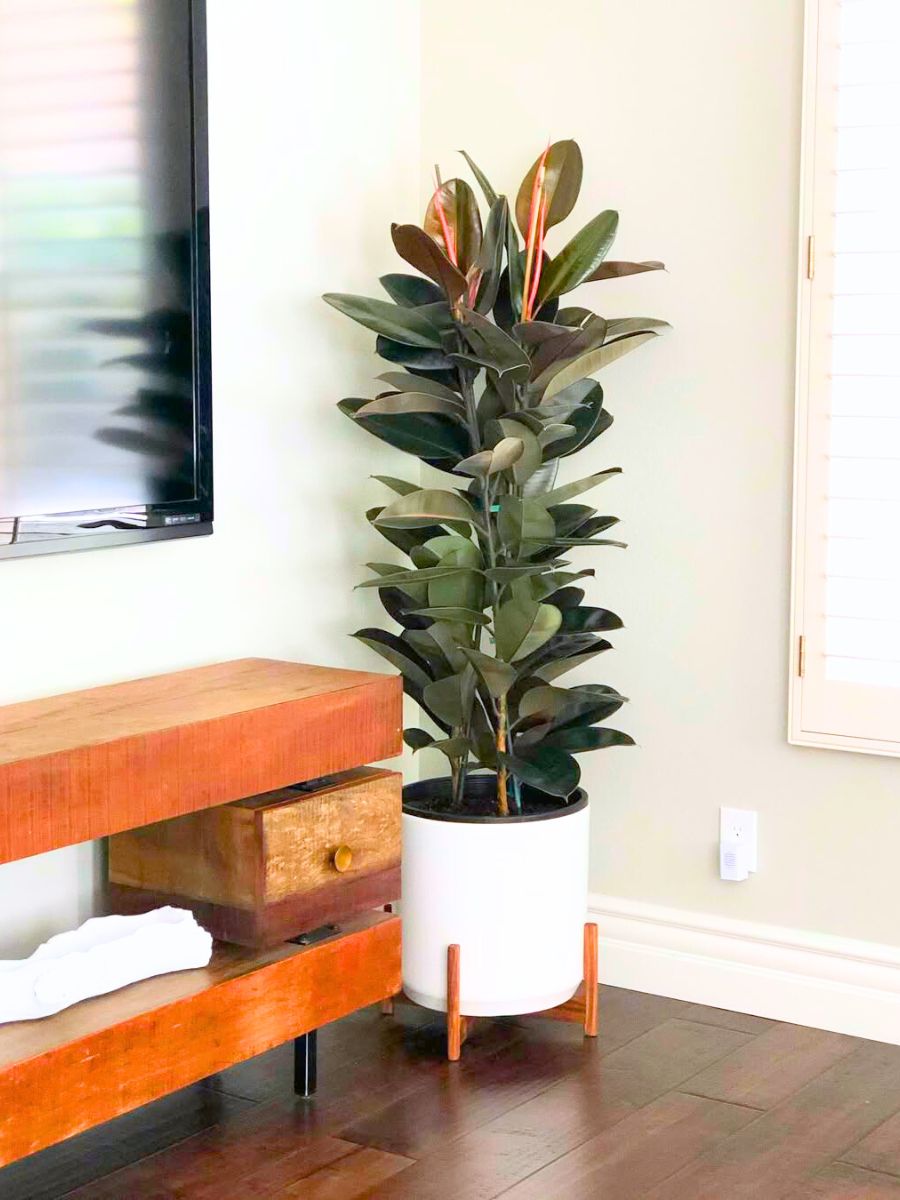
Alternative: Calathea orbifolia provides large, beautiful leaves that mimic the rubber plant’s appearance without toxicity. It’s a pet-safe choice that adds a tropical vibe to your home.
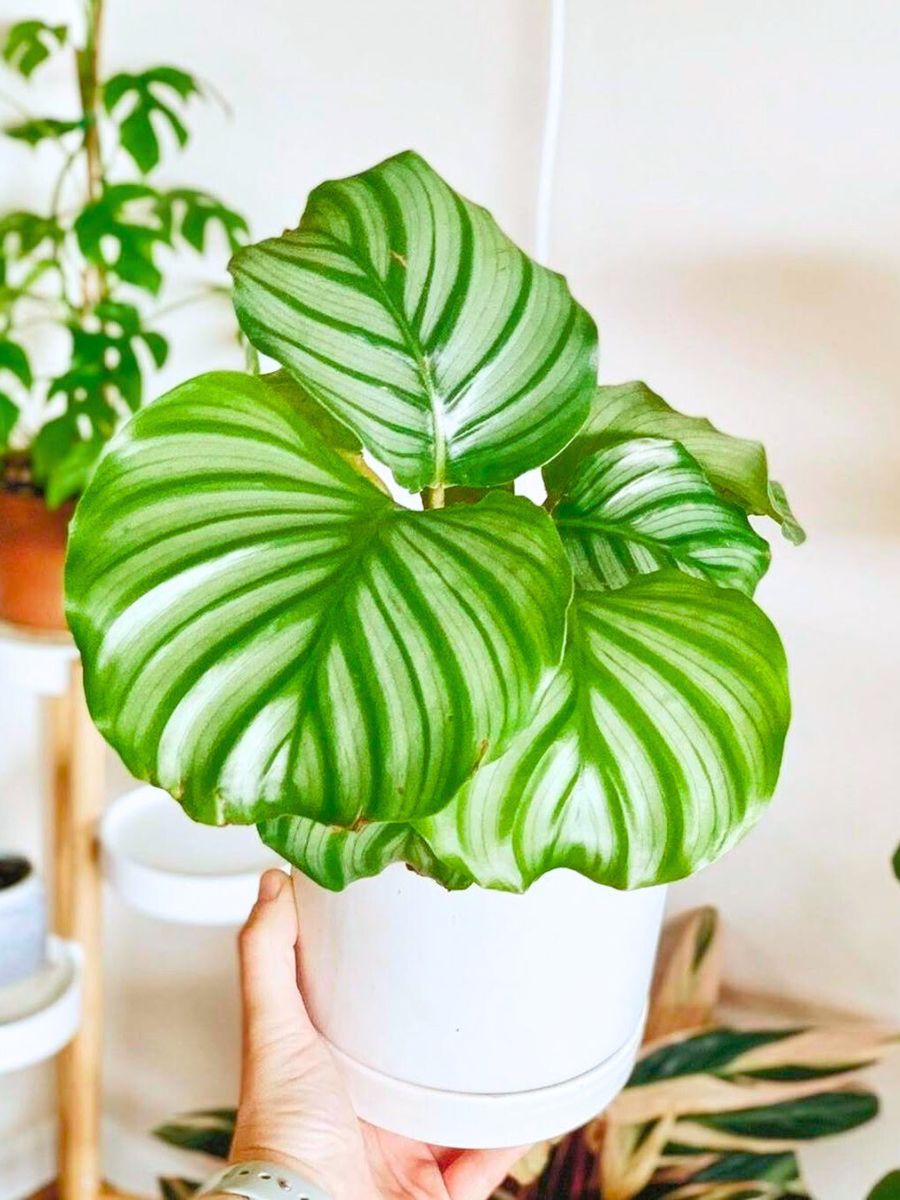
These options will do wonders if you have a dog. However, if you're a cat owner, no worries, the article 'Pet-Friendly Houseplants Safe for Cats and Dogs' has got you covered as well.
Recognizing and Responding to Poisoning in Dogs
While it's essential to know which plants are poisonous to dogs, it's equally vital to recognize the signs of poisoning and know how to respond. If your dog exhibits symptoms such as excessive drooling, vomiting, diarrhea, difficulty breathing, or lethargy, it may have ingested a toxic plant. Understanding allergies in dogs and their causes can help you ensure a healthier environment for your pets. Allergic reactions, sometimes due to airborne particles or various plant materials, can manifest as sneezing or other symptoms similar to those caused by toxic plants.
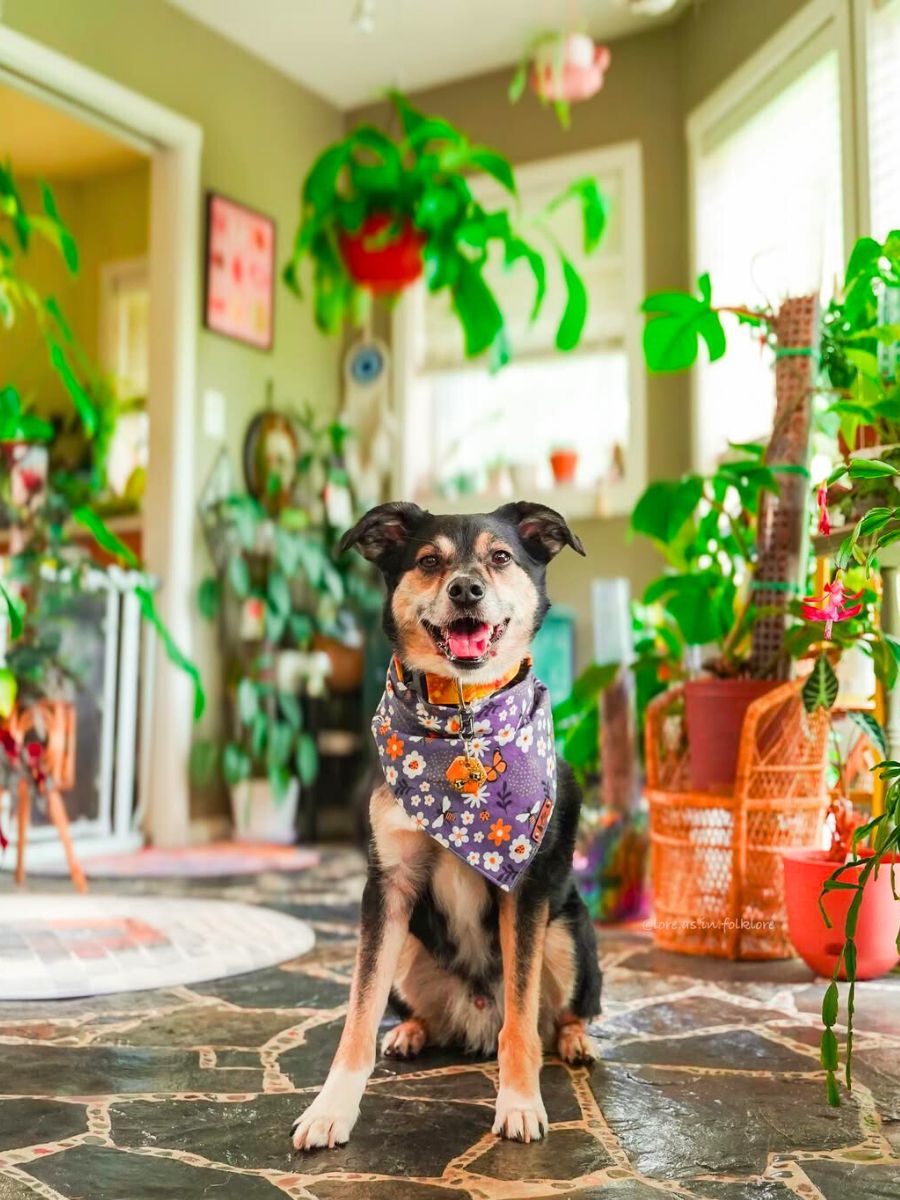
Take these tips into mind:
- If you suspect poisoning, remove any plant material from your dog's mouth and isolate it from the area containing the toxic plant.
- If possible, identify the plant that your dog has ingested. This information can be crucial for veterinarians to provide the right treatment.
- Contact your veterinarian or an emergency pet poison hotline immediately. Time is of the essence, and professional guidance is essential.
- Keep a close eye on your dog's behavior and note any changes. This information can be helpful for the veterinarian.
- Ensure that all poisonous plants are out of reach of your pets. Consider replacing them with pet-friendly alternatives, as listed in this article.
- Sneezing in dogs might not always be a sign of poisoning. It could be a reaction to various environmental factors or underlying health conditions. If you find that your dog is sneezing frequently, it's wise to consult a veterinarian to understand the root cause. Learn more about why dogs might be sneezing and what you can do about it.
By being vigilant and proactive, you can keep your furry friend safe and healthy. Remember, prevention is always better than cure, and being informed is the first step toward ensuring the well-being of your beloved pet.

